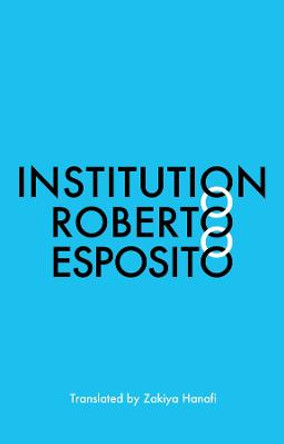Description
Although the concept of institutio vitae originated in Roman law, it was Machiavelli who first conceived of politics as an instituent force. After Spinoza endowed the social imaginary with the capacity to institute relational life, Hegel was the first to view the 'objective spirit' as the space in which society and state are structured by institutional dynamics. However, in the Hegelian system it is the same dialectic - as an infinite process in which ideas materialise in reality - that expresses instituent power. Only by drawing from these modern roots, argues Esposito, can contemporary thought recognise the movement of institutions as the strategic nexus where the languages of philosophy, anthropology, and politics intersect on a new horizon of meaning.
This book completes the inquiry that Esposito began with Instituting Thought and Institution, offering a fresh view of the philosophical tradition from an instituent perspective. It will appeal to students and academics in philosophy and the humanities generally, and to anyone interested in contemporary philosophy and cultural theory.
About the Author
Roberto Esposito is Professor of Theoretical Philosophy at Scuola Normale Superiore, Italy.
Book Information
ISBN 9781509564088
Author Roberto Esposito
Format Paperback
Page Count 200
Imprint Polity Press
Publisher John Wiley and Sons Ltd






